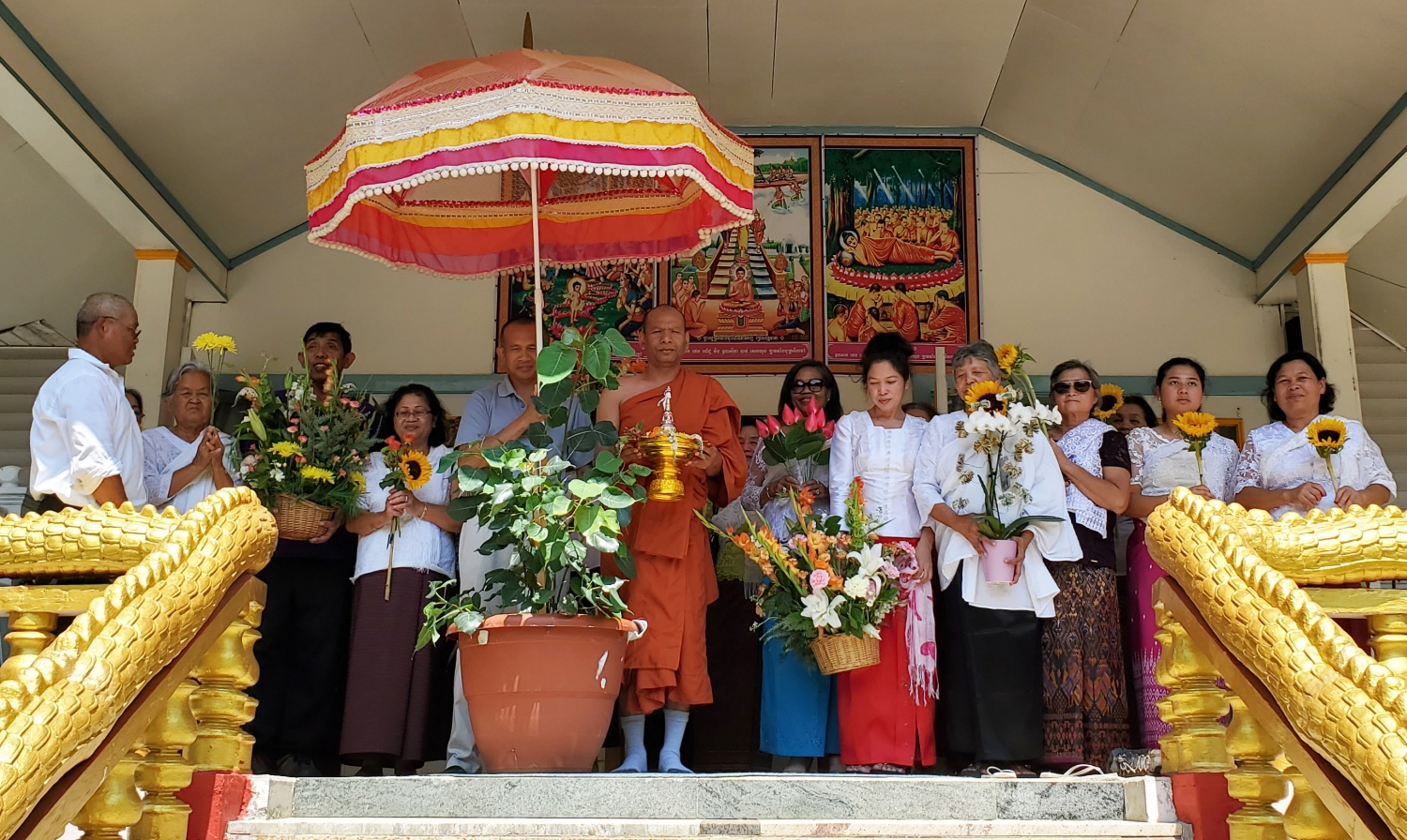-
Comment July 29, 2019
-
The Story of a Samanera from Kosambi
Comment July 13, 2019Verse 96: An arahat is calm in his mind, calm in his speech, and also in his deed; truly knowing the Dhamma, such an arahat is free from moral defilements and is unpurturbed by the ups and downs of life.
The Story of a Samanera from Kosambi
While residing at the Jetavana monastery, the Buddha uttered Verse (96) of this book, with reference to a samanera, a pupil of Thera Tissa from Kosambi.
Once, a seven year old boy was made a samanera at the request of his father. Before his head was shaved the boy was given a subject of meditation. While he was being shaved, the boy had his mind fixed steadfastly on the object of meditation; as a result, he attained arahatship as soon as they finished shaving his head.
After some time, Thera Tissa, accompanied by the samanera, set out for Savatthi to pay homage to the Buddha. On the way, they spent one night in a village monastery. The thera fell asleep, but the young samanera sat up the whole night beside the bed of the old thera. Early in the morning, the old thera thought it was time to wake up the young samanera. So he roused up the samanera with a palm-leaf fan, and accidentally hit the eye of the samanera with the handle of the fan and damaged the eye. The samanera covered that eye with one hand and went about doing his duties of getting water for the thera to wash his face and clean his mouth, sweeping the floor of the monastery, etc. When the young samanera offered water with one hand to the thera, the thera chided him, and said that he should offer things with both hands. Only then, did the thera learn how the samanera lost his eye. At that instant, he realized that he had wronged a truly noble person. Feeling very sorry and humiliated, he made an apology to the samanera. But the samanera said that it was not the fault of the thera, nor his own fault, but that it was only the result of kamma, and so the thera was not to feel sad about it. But the thera could not get over the unfortunate incident.
Then they continued their journey to Savatthi and arrived at the Jetavana monastery where the Buddha was in residence. The thera then told the Buddha that the young samanera who came along with him was the most noble person he had ever met, and related all that had happened on their way. The Buddha listened to him, and replied, “My son, an arahat does not get angry with anyone he is restrained in his senses and is perfectly calm and serene.”
Then the Buddha spoke in verse as follows:
Verse 96: An arahat is calm in his mind, calm in his speech, and also in his deed; truly knowing the Dhamma, such an arahat is free from moral defilements and is unpurturbed by the ups and downs of life.Dhammapada Verse 96
Kosambivasitissattherasamanera VatthuSantam tassa manam hoti
santa vaca ca kamma ca
sammadanna vimuttassa
upasantassa tadino.Source: Tipitaka
-
True wisdom lies in being humble
1 July 13, 2019 -
The one in whom no longer exist the craving
Comment May 26, 2019 -
It takes no effort to love
1 May 26, 2019 -
When kindness has left people
111 May 26, 2019 -
The Story of Thera Sariputta
Comment April 27, 2019Verse 95: Like the earth, the arahat is patient and is not provoked to respond in anger; like the door-post he is firm; he is unperturbed by the ups and downs of life; he is serene and pure like a lake free from mud. For such an arahat there will be no more rebirth.
1. apetakaddamo: free from mud. The lake water being free from mud is unpolluted; the arahat being free from defilements is also serene and pure.
The Story of Thera Sariputta
While residing at the Jetavana monastery, the Buddha uttered Verse (95) of this book, with reference to the Chief Disciple Sariputta and a young bhikkhu.
It was the end of the vassa; and Thera Sariputta was about to set out on a journey with some followers. A young bhikkhu, who bore some grudge against the thera, approached the Buddha and falsely reported that Thera Sariputta had abused him and beaten him. The Buddha therefore sent for the thera and questioned him, and Thera Sariputta replied as follows: “Venerable Sir! How could a bhikkhu, who steadfastly keeps his mind on the body, set out on a journey without apologizing, after doing wrong to a fellow bhikkhu? I am like the earth, which feels no pleasure when flowers are cast on it, nor resentment when rubbish and excreta are piled upon it. I am also like the door-mat, the beggar, the bull with broken horns; I also feel abhorrence for the impurity of the body and am no longer attached to it.”
When Thera Sariputta spoke thus, the young bhikkhu felt very much distressed and wept bitterly, and admitted that he had lied about the Chief Disciple Sariputta. Then the Buddha advised Thera Sariputta to accept the apology of the young bhikkhu, lest a heavy punishment should fall on him and get his head crushed. The young bhikkhu then admitted that he had done wrong and respectfully asked for pardon. Thera Sariputta pardoned the young bhikkhu and also asked to be forgiven if he also had done any wrong.
All those present talked in praise of Thera Sariputta, and the Buddha said, “Bhikkhus, a bhikkhu like Sariputta has no anger or ill will in him. Like the earth and the door-post, he is patient, tolerant, and firm; like the lake free from mud, he is serene and pure.”
Then the Buddha spoke in verse as follows:
Verse 95: Like the earth, the arahat is patient and is not provoked to respond in anger; like the door-post he is firm; he is unperturbed by the ups and downs of life; he is serene and pure like a lake free from mud. For such an arahat there will be no more rebirth.Dhammapada Verse 95
Sariputtatthera VatthuPathavisamo no virujjhati
indakhilupamo tadi subbato
rahadova apetakaddamo1
samsara na bhavanti tadino.Source: Tipitaka
-
A mind of gratitude
Comment April 26, 2019 -
Characteristics of a noble person
Comment April 26, 2019 -
Land use changes
Comment April 23, 2019



















